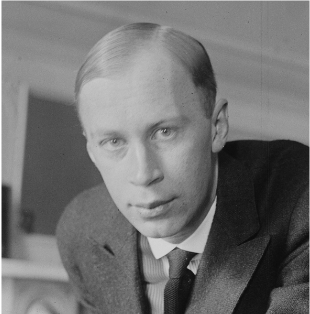


Russian composer and pianist who wrote a wide range of musical genres and is recognized by most critics as one of the greatest modern composers. Prokofiev's first love was opera. He composed several operas, including "War and Piece", "The Gambler", "The Fiery Angel" and his most successful satirical one "The Love for Three Oranges". Some of his other acclaimed works are "Romeo and Juliet" and "Symphony No 1".
Born in Ukraine, he was the only child in the family, was homeschooled and rarely played with the local kids, who according to his parents were “social inferiors”, a stance that that encouraged the snobbery that later characterised Prokofiev’s personality. He displayed an early talent in music, also supported by his mother who was a pianist and followed him to St. Petersburg to continue his musical education at the Conservatory. There, he was considered a musical innovator and was distinguished for his compositions, although some of them were controversial, as well as his energetic and "athletic style" performances. He looked down on the education that he received there, which he found boring, and was viewed as odd and arrogant, often rudely criticising his fellow piano students. According to Prokofiev's friend Nicholas Nabokov, Prokofiev’s rudeness “bordered on sadistic cruelty”.
His compositions were difficult to perform and the audience did not appreciate them at the beginning. In a 1913 premiere, the audience reportedly left the hall with exclamations of "the cats on the roof make better music!".
In the aftermath of the Russian revolution, he decided to leave Russia as he saw no opportunities for his experimental and innovative music there. He moved to the United States for 2 years, where success was limited and then moved to Paris, where he was enthusiastically received by the audiences and was influenced by the music he was exposed to and other composers he met. In the early 1930s, although he had received recognition and fame in Europe, Prokofiev returned to the Soviet Union, with the hope to take control of the music scene of his country. But there, he was forced, just like Shostakovich, to follow the governmental policies in his compositions, including officially approved lyrics and themes. Soviet culture and aesthetics at that time was a matter of control over writers and artists. Yet, some of Prokofiev's best music was written in the Soviet Union in these years and included mainly music for film and theater.
In his personal life, although Prokofiev gave the impression of a family man with warm feelings for his wife, he usually abused her, as revealed by recently published letters, treated her with cruelty and finally left her for another younger woman.
His death was overshadowed by Stalin's death. Prokofiev died poor and alone on the same day with Stalin and for 3 days the crowds were gathered in the Red Square to mourn Stalin so that it was impossible to move Prokofiev's body out of the funeral service.